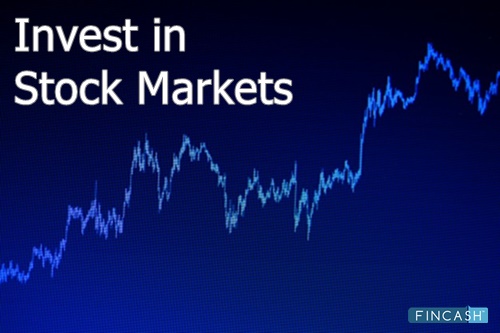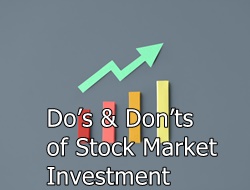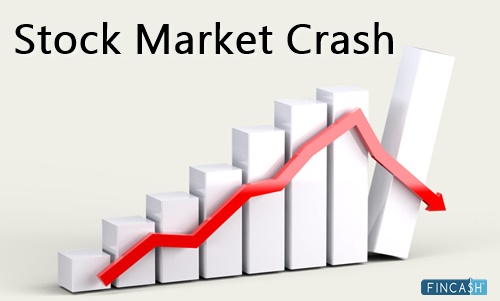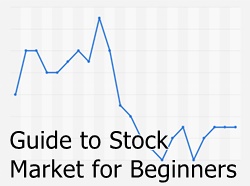
Table of Contents
How to Invest in the Stock Market?
The stock Market is gaining a lot of attention. People want to invest in stocks as it serves a great medium to earn extra Income. Making money through the stock exchange is something lucrative, but this comes with its set of risks if you don't use proper strategies.
The stock market (also called the share market) gives many avenues to invest money, but this has to be done with analysis (Technical Analysis , fundamental analysis etc) and only then one should take the Call of Investing. Today, a lot of investing takes place in penny stocks or via stock tips, this is dangerous and can result in losses to the investor.

Investors also sometimes take exposure to complex derivative instruments called futures & options without understanding the risks, this can (and will) result in huge losses. The share market is very transparent, prices of stocks etc are available online (that's why it's called a 'live stock market') allowing investors to buy, sell and monitor their investments on a Real Time Basis. Over time the financial markets in India have matured, and today investing can take place in the equity market, commodity markets and even forex (also called currency markets). Here we try to see if an investor were to go about investing in the stock market, how can they go about this difficult task.
Choose your Stock Broker Wisely
The first step to investing in the stock market is to choose a broker on this journey. This is the person or entity who will execute the trades for the investor. The below are some key aspects one should look at:
Customer Service
Service is a very important Factor in considering a broker. Query resolution, order placing (buy or sell), contract notes (these are essential documents of the trades), Capital gains reports etc, are all very important aspects of investing. Imagine if you are trying to get in or get out of a stock and your broker is unreachable, or the call center keeps you on hold for 20 minutes? Or you are due to file your Income Tax Returns, but your broker is unable to give the Capital Gains reports on time. One needs to carefully see the service levels and track record of a broker on this aspect to avoid heartburn later. Customer service is important in investing in the stock market.
Background Check
This is like a reference check for an employee, Always ask around and do a google search etc. to see if there are an unusual number of complaints against a broker. This maybe warning signal.
Costs
Costs are important, especially if you are a trader. Even for long term investors (those Buy and Hold people) this is important. One should carefully read the fine print here and see if there are any hidden costs. A comparison of 2 to 3 brokers will give you an idea of prevailing cost structures. However, one should not choose a broker purely on costs if other aspects suffer. (no service?)
Product Suite
The variety of products available beyond just equity trading is another aspect. With time, as investors learn about other asset classes, it would be useful to have a broker Offering services such as Bonds etc. Getting stuck to a broker who offers a single product may not be something great in the future. Beyond this, you may want to see the kind of research provided and the knowledge of the broker. Also figure out if there is a 'sales approach' wherein the broker just tries to give top recommendations, or tries to give recommendation basis your profile and risk appetite. Selecting the broker is an important aspect and one should always spend some time to select the right one. Broker selection hence is a significant step in investing in the stock market.
Talk to our investment specialist
Stock Selection: Analysing Stocks Smartly
Smart investing is choosing your stocks wisely. This is one of the most critical aspects of 'How to Invest in the Stock Market' (if not the most critical!). Stock selection is an Industry in itself, there are fund managers, Portfolio managers & research analysts who are specialists at this job. While there can be an endless list of the factors that go into selecting a 'good stock', some of them could be :
- Financials of the company: Checking Balance Sheet and profit & loss statements
- Growth prospects: How is the growth trajectory of the company, is the company showing good growth over its peers
- Fundamental Analysis: Looking at key ratios ( P/E, PEG, etc), different industries require one to look at different ratios
- Growth: In terms of company's product line and expansion plan
- Management of the company - A good management can do wonder. So check the background of the management, their experience, company's growth under them, etc
- Strength and weakness - A good analyst will always check the good and bad about the company
Always remember stock selection is a very important aspect of investing in the stock market. Going by tips and hearsay may not result in good selection, those investing may only repent later. Also, keep learning about stock market. Read as much as you can. Keep yourself updated with latest happenings around the world. Check political news, regulations, etc.
Monitoring of Investments
If one creates stock portfolio by himself, then an important aspect is monitoring of the stocks. One needs to regularly monitor the portfolio even if its for long-term investing. There could be regulatory changes, management changes, strategy changes, a product line becoming nonviable, technology becoming obsolete etc and list could go on and on. All these impacts the share price (mostly negative!), hence monitoring is an important aspect of investing in the stock market. Also one needs to look out if the stock price has moved up and the stock has lived its potential. This could be a good price to exit. All this requires constant monitoring.
Any Other Way to Investing in the Stock Market?
Well if one did NOT have the expertise to do the stock selection and the time & effort required to do the constant monitoring, Mutual Funds present a good way for investors to invest in the stock market. Fund managers are experts in their fields and its their full-time job to select securities to invest in, they also do the job of monitoring the investments. Mutual Funds as an industry is regulated by SEBI and AMFI ensuring that rules & regulations are followed. Mutual Funds Vs stocks markets may be a good question to answer, however one needs to carefully make the choice, else you could end up burning your hard earned money. There are various Types of Mutual Funds today that can cater to all risk profiles of investors making them a viable choice for those who are new to the stock market and want to leave it to the experts. Also for those earning monthly income via salaries, Systematic investment plan (SIPs), offer a great way to create long-term wealth with a multitude of benefits. investing in Mutual Funds is relatively easy as compared to the rigors of investing in the stock market. One needs to always carefully decide the route to follow on investing that in the long run one makes money!
Some of the Best Performing Mutual Funds to look at are (ordered based on 3 year performance and having net assets > 500 crore):
Fund NAV Net Assets (Cr) 3 MO (%) 6 MO (%) 1 YR (%) 3 YR (%) 5 YR (%) 2024 (%) Invesco India PSU Equity Fund Growth ₹65.88
↓ -0.21 ₹1,394 19.1 13.2 -6 38.5 29.7 25.6 SBI PSU Fund Growth ₹32.3962
↓ -0.17 ₹5,259 12.8 8.6 -4.9 37.3 30.5 23.5 Nippon India Power and Infra Fund Growth ₹354.13
↓ -0.55 ₹7,417 17.4 5.3 -6.6 35.3 32.4 26.9 ICICI Prudential Infrastructure Fund Growth ₹199.16
↓ -0.45 ₹7,920 17.1 9.5 2.7 34.9 36.9 27.4 HDFC Infrastructure Fund Growth ₹48.328
↑ 0.01 ₹2,540 15.2 7.3 -2.3 34.5 34.4 23 Franklin India Opportunities Fund Growth ₹255.045
↑ 0.65 ₹6,864 16.4 3.6 2.7 34 30.9 37.3 IDFC Infrastructure Fund Growth ₹51.71
↑ 0.16 ₹1,701 18.1 2.9 -8.5 33.5 34.6 39.3 Franklin Build India Fund Growth ₹143.762
↓ -0.06 ₹2,857 16.9 6.2 -1.7 33.1 33.1 27.8 Motilal Oswal Midcap 30 Fund Growth ₹102.825
↓ -0.24 ₹30,401 18.5 -4.3 6 32.6 35.6 57.1 LIC MF Infrastructure Fund Growth ₹50.3894
↑ 0.04 ₹1,005 24.8 0.5 -3.8 32.4 32.4 47.8 Note: Returns up to 1 year are on absolute basis & more than 1 year are on CAGR basis. as on 9 Jul 25
All efforts have been made to ensure the information provided here is accurate. However, no guarantees are made regarding correctness of data. Please verify with scheme information document before making any investment.












